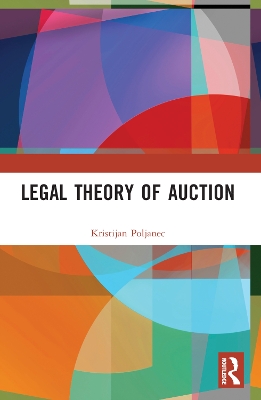Good Faith in Long-Term Relational Supply Contracts in the Context of Hardship from A Comparative Perspective
 portes grátis
portes grátis
Good Faith in Long-Term Relational Supply Contracts in the Context of Hardship from A Comparative Perspective
Guo, Peng
Springer Verlag, Singapore
11/2021
184
Dura
Inglês
9789811655128
15 a 20 dias
477
Chapter 2: Chapter Two will examine the nature and characteristics of long-term contracts and long-term relational supply contracts in particular. A definition of a long-term relational contract is also proposed. To refine the scope of the book, and to make the arguments stronger and more acceptable, Chapter Two will emphasise the extent to which the book concentrates on long-term relational supply contracts in the ensuing chapters.
Chapter 3: Chapter Three will discuss the different mechanisms relating to hardship in the selected domestic laws, in the CISG and in the UNIDROIT Principles. The chapter will demonstrate that good faith is often applied when dealing with hardship issues.
Chapter 4: Chapter Four will investigate good faith in domestic laws, the CISG and the UNIDROIT Principles, to address how it is applied to deal with hardship issues and why good faith is not applied in English law and Australian law. It will argue that the many facets and levels of good faith make it an appropriate tool for tackling issues relating to long-term relational supply contracts in the context of hardship.
Chapter 5: Chapter Five will first address the concrete manifestations of good faith in long-term contracts under the UNIDROIT Principles. It will then identify the gaps and vagueness in the rules underlying the UNIDROIT Principles. Recognising that the book's ultimate goal is not to design a totally new set of rules in respect of hardship, this chapter will present suggestions on how to improve the quality, and promote the application of, the hardship rules provided by the UNIDROIT Principles. It will suggest how to address the shortcomings and dispel the vagueness surround the hardship issue from both substantive and procedural perspectives. This chapter also proposes a double-construction approach and suggests a list of factors that should be taken into account by the courts or arbitral tribunals in determining whether the parties have acted in good faith.
Chapter 6: Chapter Six will analyse the importance and necessity of a relational and a good faith understanding of hardship rules in international trade in the future. It will detail why extending the principle of pacta sunt servanda to pacta sunt servanda bona fide is innovative and how it can redress the problems associated with hardship identified in the foregoing chapters.
Chapter 2: Chapter Two will examine the nature and characteristics of long-term contracts and long-term relational supply contracts in particular. A definition of a long-term relational contract is also proposed. To refine the scope of the book, and to make the arguments stronger and more acceptable, Chapter Two will emphasise the extent to which the book concentrates on long-term relational supply contracts in the ensuing chapters.
Chapter 3: Chapter Three will discuss the different mechanisms relating to hardship in the selected domestic laws, in the CISG and in the UNIDROIT Principles. The chapter will demonstrate that good faith is often applied when dealing with hardship issues.
Chapter 4: Chapter Four will investigate good faith in domestic laws, the CISG and the UNIDROIT Principles, to address how it is applied to deal with hardship issues and why good faith is not applied in English law and Australian law. It will argue that the many facets and levels of good faith make it an appropriate tool for tackling issues relating to long-term relational supply contracts in the context of hardship.
Chapter 5: Chapter Five will first address the concrete manifestations of good faith in long-term contracts under the UNIDROIT Principles. It will then identify the gaps and vagueness in the rules underlying the UNIDROIT Principles. Recognising that the book's ultimate goal is not to design a totally new set of rules in respect of hardship, this chapter will present suggestions on how to improve the quality, and promote the application of, the hardship rules provided by the UNIDROIT Principles. It will suggest how to address the shortcomings and dispel the vagueness surround the hardship issue from both substantive and procedural perspectives. This chapter also proposes a double-construction approach and suggests a list of factors that should be taken into account by the courts or arbitral tribunals in determining whether the parties have acted in good faith.
Chapter 6: Chapter Six will analyse the importance and necessity of a relational and a good faith understanding of hardship rules in international trade in the future. It will detail why extending the principle of pacta sunt servanda to pacta sunt servanda bona fide is innovative and how it can redress the problems associated with hardship identified in the foregoing chapters.
















